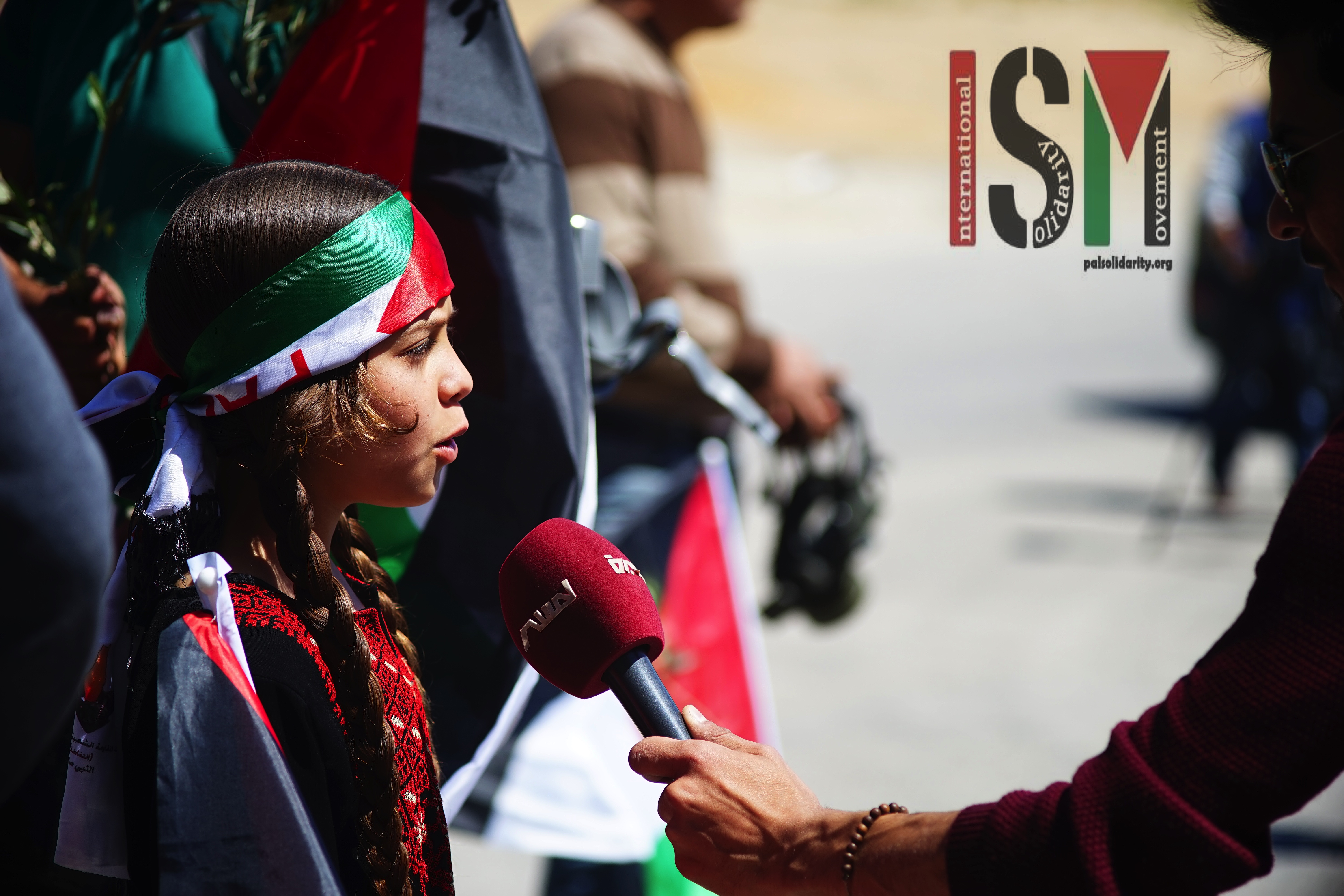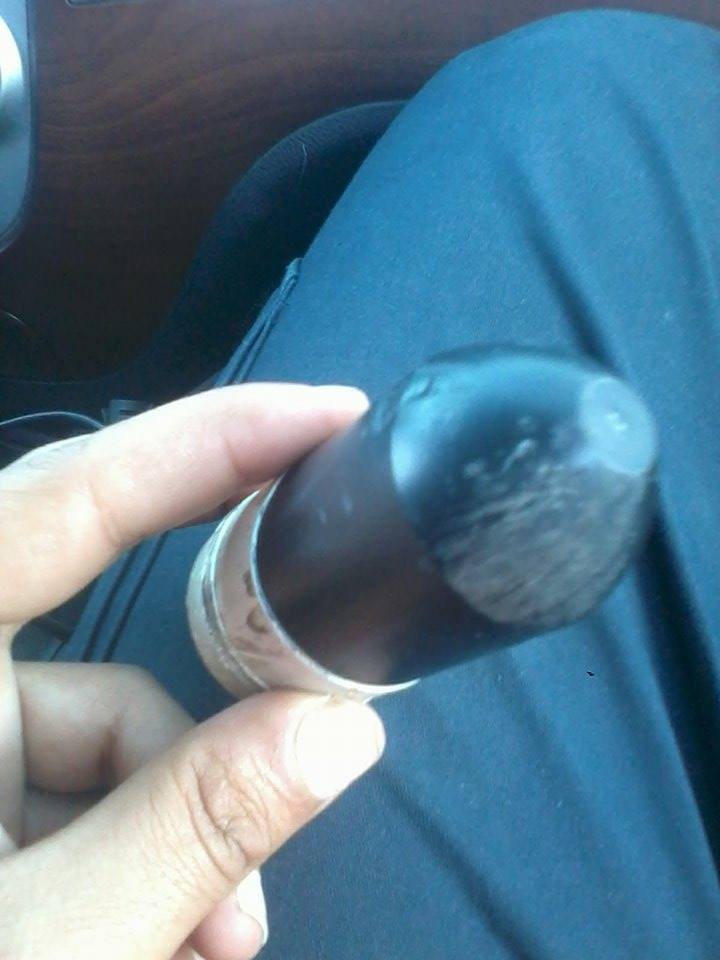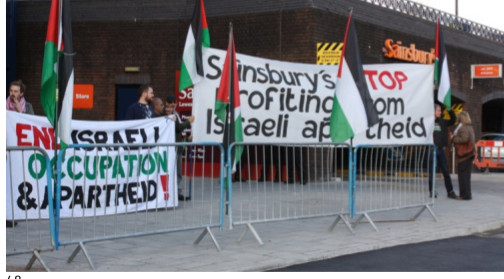-
Targeting of civilians with excessive force in Ni’lin
1st April 2016 | International Solidarity Movement, al-Khalil team | Ni’lin, occupied Palestine On 1st April, the weekly non-violent protest in Ni’lin village commemorated the Palestinian Land Day – and was, as every week, attacked by Israeli forces with endless rounds of tear gas, including long-range tear gas canisters that mainly targeted civilians. The demonstrators, […]
-
Apartheid in the fields: Part 3 How the food gets to us and what we can do
1st April 2016 | International Solidarity Movement, al-Khalil team | Gaza Strip, occupied Palestine A new report from Corporate Watch outlines exactly how the food grown in the illegal settlements of Palestine gets to our plates in Britain. This final summary looks at what we in Britain can do to support the boycott called for by […]
Action Alert An Nabi Saleh Apartheid Wall Arrests BDS Bethlehem Bil'in Cast Lead Demonstration Denial of Entry Ethnic Cleansing Farmers Gaza Global Actions Hebron House Demolition International law Israeli Army Jerusalem Live Ammunition Nablus Ni'lin Prisoner Ramallah Rubber-coated steel bullets Settlement Settlers Settler violence Tear-Gas Canister Video



